The beginning of international medical cooperation 61 years ago is one of the most beautiful and noble pages that Cuba has written in the history of the revolution. Over more than six decades, the island’s health professionals have treated millions of people in 165 countries.
Dr. Fernando Guillermo Grondona Torres is a witness to this immeasurable love for humanity. The current head of the National Medical Commission of the Cuban Mission in Venezuela, he arrived in this sister land since 2020 as part of an advanced group of six experts to confront Covid and reduce the rates of infection and mortality due to the epidemic.
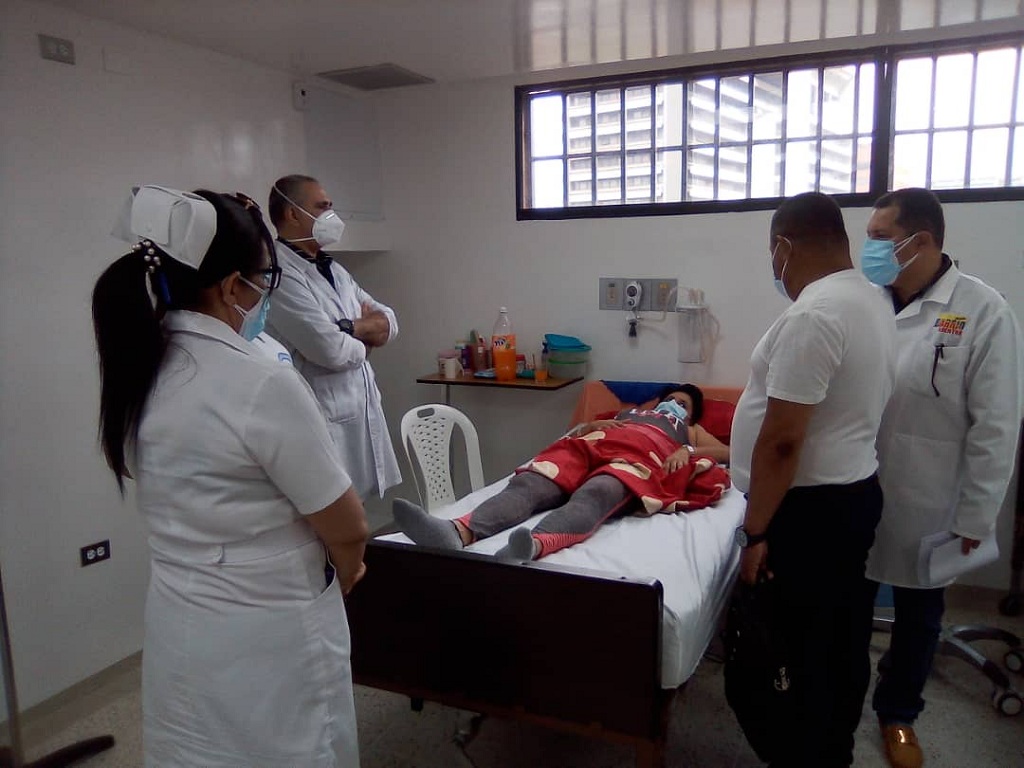
Then, after a short stay in the homeland, he was appointed to assume the responsibility that he performs today with all the devotion and dedication that appears on the surface with the aim of providing specialized care, a dispensary and health protection to the collaborators of the tasks assigned by the Supreme Commander Fidel Castro to take care of the quality of life of the internationalists on the island.
As expressed “Our medicine is characterized by solidarity, the dedication of our specialists, and non-commercialization. We do not prescribe medicines above those necessary, to satisfy laboratories and companies as a business, which is what happens in the capitalist world. We “defend ethics and respect for human beings.”Confirms.
He graduated in 1988 from the Carlos J. Finley I, and worked at several medical institutions in Havana, including the Frank Pais Orthopedic Hospital and the Carlos J. Finley Military, with responsibilities responsible for acute care services.
He later graduated as a specialist in internal medicine, and became a master’s degree in emergency medicine and an assistant professor, in addition to assuming various responsibilities, until in 2006 he moved to work in the emergency and treatment department of the Ministry of Public Health.
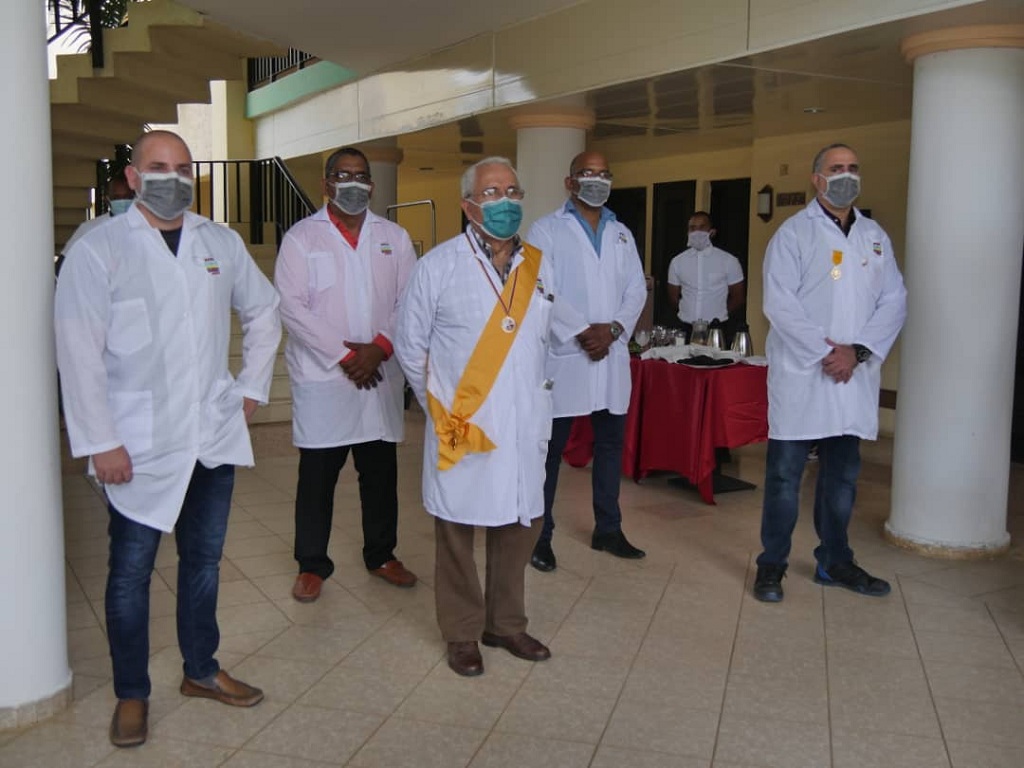
A curriculum that grows due to his perseverance and commitment: As part of the “Henry Reeve” international team of doctors specializing in disasters and serious epidemics, he was part of the miracle mission through the ALBA Accords in Venezuela and other Latin American countries (Uruguay, Paraguay, Mexico, Nicaragua, Bahamas, Jamaica , Guatemala, Venezuela and others), so he traveled to more than fifteen countries to help deliver the light of the vision to the brothers in the region.
He also carried out a UN mission in Angola until 2010 and returned to work in the National Emergency Medical System of the Health Directorate. His international experience has made him a better professional and a better human being.
“I had the opportunity to visit a hospital in Brazil, and the first thing they did when they arrived was not to see a doctor, but to go directly to the medical bills, and there they told me the cost of care; in Angola, professionals did not treat patients if they did not bring money; it was delayed for more than An Angolan citizen was admitted to the operating room because his family did not have money to cover the expenses; in Paraguay we saw girls aged 14-15 carrying their children in the streets, and the mothers themselves hired these children to provide extra compassion and raise money, and it had a huge impact.” I confess.
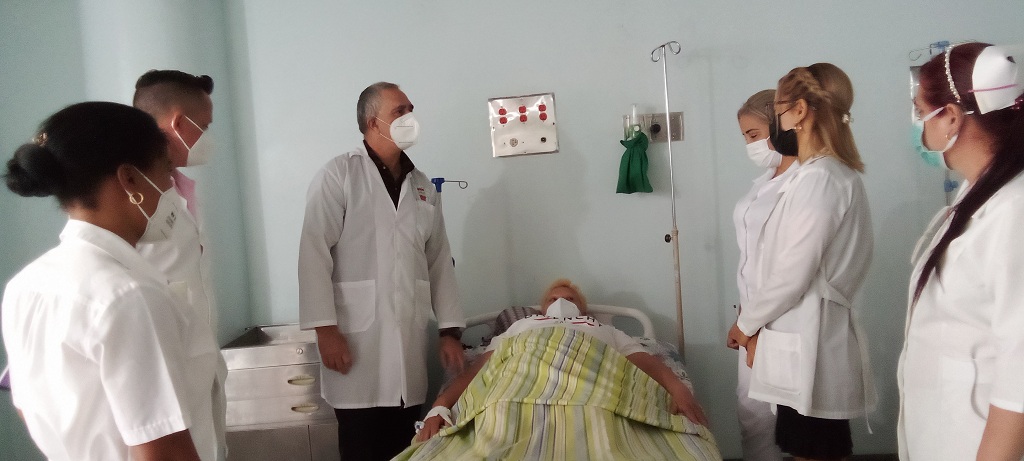
Dr. Fernando Guillermo Grondona Torres specializes in caring for seriously ill patients. He passed international courses in the field of medical assistance and protection against chemical weapons disasters in Lithuania, Turkey and China.
Today he insists on the need to update knowledge and constantly prepare himself, because in his opinion “A professional dedicated to medical emergencies must know the pathology of people with serious illnesses, quickly see the changes in the patient’s symptoms, and stabilize the parameters immediately, because if we stop thinking about the causes, we lose our lives.” For these people, we must move quickly to resolve the urgent health situation, and the doctor who devotes himself to this must have security, confidence in the procedures, in the organizational schemes established in the world, to be clear in which order of priorities he is in the classic ABC, there may be a wound. , or amputation, but if there is no air in a person, there is no life, and if there is no circulation, there is no life, and this is the first thing that should be. It is taken care of, then the causes are looked for, “but the most important thing in an emergency is to save the person.”.
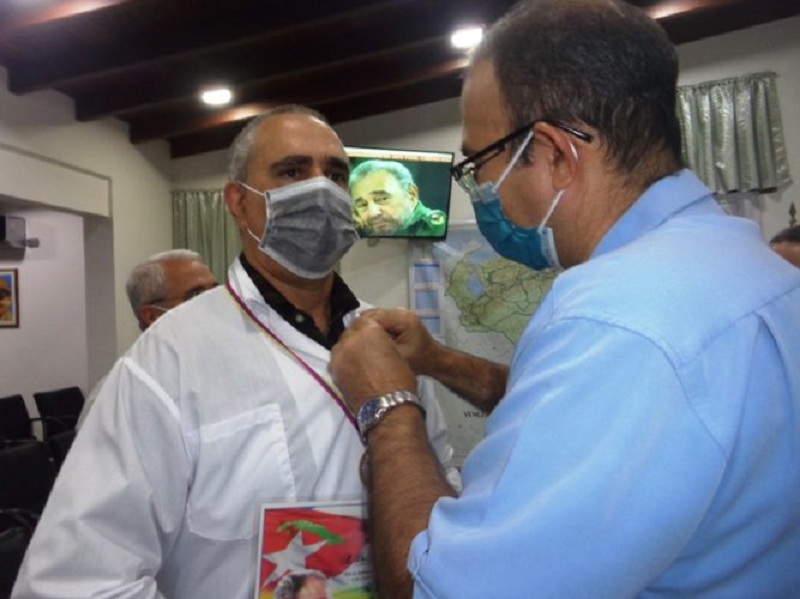
The head of the Medical Commission of the Cuban Mission in Venezuela does not have time, he remains informed at every moment about the health of every collaborator, today with digital means that allow him to make quick and safe decisions.
Despite the stress and great responsibility involved in his work, he feels great pride in what he does.”Because my country has appointed me, I feel useful in the task at hand. I have mastered the most efficient use of digital media to deal with the pathological cases of collaborators. We have medical committees in the states and regional centers that have the material and human resources and we give priority to the development and diagnosis of patients from here.
From Venezuela we take teachings and lessons from it “How to confront a pandemic that the world has never seen before, such as Covid, we combined epidemiological knowledge, and it was possible to apply it practically, Confirms.
On May 23, 1963, Cuba sent the first Cuban medical contingent to Algeria, opening the route that has been maintained for more than six decades. Since then, health professionals from the island have been present in countries affected by earthquakes, hurricanes, floods, epidemics and volcanic eruptions, among other disasters.
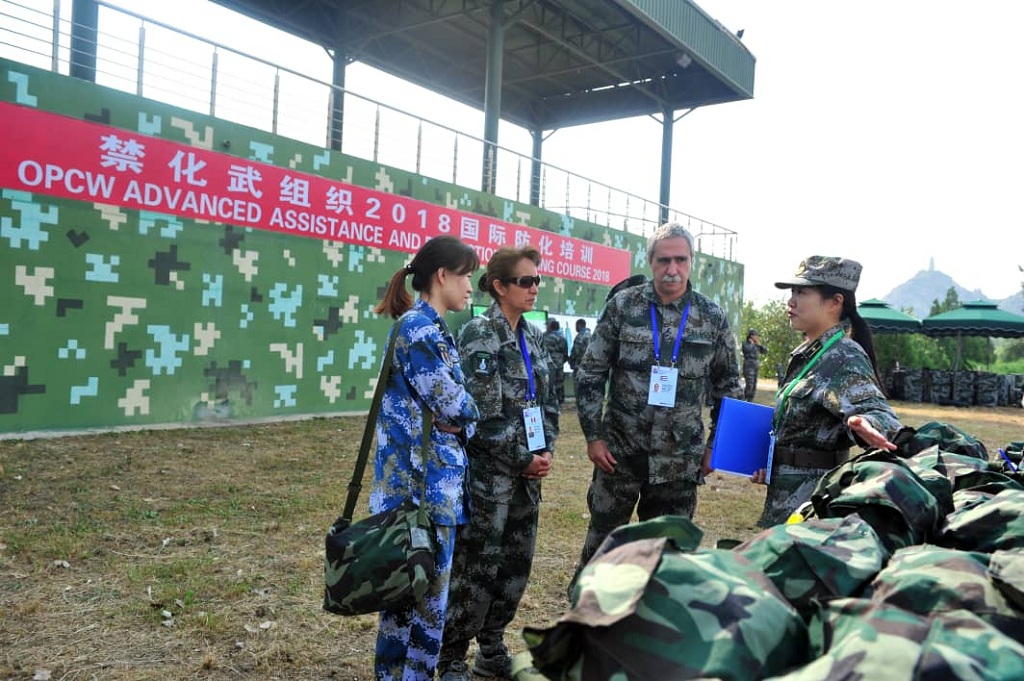
These are lessons that cannot be forgotten, confirms this expert who insists on the idea that ““Medicine cannot be a commodity, it cannot be commercialized, because then the profession is dehumanized, and we must apply the clinical method, which achieves 80% of diagnoses.”
Over sixty years of the White Coat Army bringing love to the world “We have learned to have a greater awareness of offering what we have and not what we have left. Venezuela is a brotherly and supportive country. We have gone through difficult situations and feel proud to help our brothers. This has been a key element in continental unity and an example of dedicated cooperation with our people in Latin America.” This is a man who today is convinced that after 61 years of Cuba’s international medical cooperation, the miracle of love and solidarity is growing, says this man with pride.
details In the radio proposal.

“Award-winning alcohol trailblazer. Hipster-friendly internetaholic. Twitter ninja. Infuriatingly humble beer lover. Pop culture nerd.”
